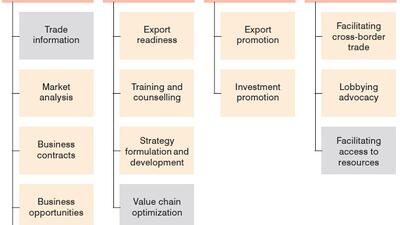
Overcoming political risk for SMEs through infrastructure investment
Infrastructure investment needs are huge and growing. According to the World Bank’s current Infrastructure Strategy, an estimated US$1.1 trillion annual expenditure in developing countries – or 6.6% of the developing world’s gross domestic product – is needed to satisfy demand for infrastructure services through 2015 alone.
Private international capital has an important role to play in financing infrastructure investments, given the fiscal constraints facing many developing countries. However, banks which may have been forthcoming in providing financing to the private sector for long-term infrastructure investments may now be facing constraints in their ability to offer financing associated with Basel III regulations. For example, higher minimum capital levels for banks and new rules regarding assets and liabilities management may discourage project finance lending. Private companies may also have concerns about perceptions of political risk in many locations where they might be seeking to invest in infrastructure projects.
To mitigate these risks, institutions such as the World Bank Group’s Multilateral Investment Guarantee Agency (MIGA) offer instruments that help investors and lenders feel more confident moving forward in certain contexts. The first is political risk insurance, which allows cross-border investors and lenders to mitigate non-commercial risks arising from adverse government actions. Those may include expropriation; breach of contract; restrictions on the convertibility and transfer of currency; and political violence events including war and civil disturbance. Political risk in general (and breach of contract in particular) consistently leads the list of the most important constraints facing foreign investors in developing countries.
The second instrument is credit enhancement. It protects cross-border lenders against losses resulting from the failure of a sovereign, sub-sovereign, or state-owned enterprise to make a payment under an unconditional financial payment obligation or a guarantee related to an eligible investment. Credit enhancement products allow sovereign and sub-sovereign borrowers access to longer-term financing and lower funding costs.
For example, in 2013, the State of São Paulo and the World Bank committed US$129 million and US$300 million, respectively, to the rehabilitation and upgrading 750 kilometres of state roads and the reconstruction of two bridges for inland waterway transport on the Tiete River. The project was expanded, leaving a US$300-million financing gap. To address this, São Paulo bid out the project to commercial banks with a requirement that their loans be backed by MIGA’s credit enhancement instrument. This approach resulted in a more efficient use of funds for São Paulo, as MIGA’s involvement resulted in a longer tenor and more competitive pricing for the commercial loan than otherwise would have been available.
Still, encouraging private capital in infrastructure through such instruments is only a means to an end. Better infrastructure contributes to a thriving private sector for companies of all sizes, but especially small and medium-sized enterprises (SMEs). While SMEs constitute the backbone of the economy in many developing countries by contributing to employment and economic growth, their operations are often significantly hindered by the lack of adequate and affordable infrastructure. Specifically for SMEs, improved infrastructure translates into concrete benefits by allowing the formation of industrial clusters and enhancing their capacity to subcontract from foreign firms. In turn, this increases local content and trickle-down effects of foreign investment and helps SMEs to better leverage corporate networks and value chains to access world markets.
SMEs may also benefit from participating in infrastructure projects awarded to others indirectly by subcontracting portions of the work, offering equipment for leasing, or providing specialized or technical services. Direct involvement may also be possible in small-scale projects, typically offered at the sub-national level or in rural areas. While some SMEs may be well positioned to exploit such direct investment opportunities, they may also face non-commercial risks from adverse government actions such as expropriation or breach of contract.
Investments in infrastructure, regardless of size or nationality, face constraints related to noncommercial risks. While political risk insurance offers a risk mitigation solution for foreign investors, domestic investors – including SMEs – are typically not eligible. Foreign investor participation alongside local SMEs can help overcome this obstacle. More importantly, strengthening the domestic regulatory framework to address investor protection concerns would bolster both foreign and domestic investment in infrastructure by all companies.












